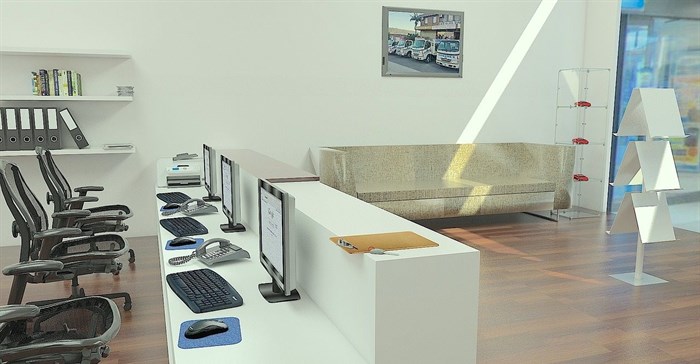
1.Store documents offsite
Despite the growing popularity of cloud storage and electronic documents, many businesses tie up a significant amount of space by holding on to hard copy files. According to Douglas Isabelle, MD of Doc-IT, an electronic document and business process management company, less than 5% of companies in South Africa use electronic document management systems (EDMS).
Removing hard copy from your premises allows you to free up spaces and be more environment conscious. It can also make it easier to meet safety standards as excess clutter can impede a speedy exit in the event of emergency. You can free up space by digitising files or, if you are obliged to hang on to hardcopy or simply prefer it, store it with a file storage company. The latter means extra security for your documents and is considerably cheaper than renting office space just for storage.
We have smart phones, smart cars, smart watches but people tend to forget just how useful smart furniture is. Smart furniture is furniture that serves many purposes but looks the same as normal furniture.
Hive, a recent introduction to South Africa, is an example of smart furniture. It is a cocoon-like desk than can be added to empty spaces and it instantly provides a well lit, ergonomically designed private place to work and also serves as a storage facility. It creates a lounge level of comfort in the office in a small space.
Be ruthless with what you keep in your office, and that goes for everything. Making your office as clutter-free as possible improves productivity and makes offices safer. Stuff builds up quickly so we advise people to go through their workspaces every three months and throw away things that are no longer serving a purpose.
Everything is getting smaller in offices, and big desks are like dinosaurs—long gone. Desks are smaller, more efficient and can be designed to what a person needs rather than making it statement of importance.
Get a small work station, perhaps one with a couple of file cabinets that slide underneath. Workers keep everything in your computer anyway, so why take up valuable space with a large desk?
Many offices make the mistake of thinking they need to add whole extra rooms to create private spaces for people to work or have an argument with the insurance company. But adding a whole room is pricey and takes up a lot of space. And then all that has been created is just one extra room which is likely to used by only one person at a time.
It’s much cheaper to use things like SpeakEasy Phone Booths, which can be added to various places around the office to let employees have a private conversation - and they have a very small footprint.
For meetings, products like Igloo can be added to empty spaces for instant, private meetings rooms without having to build whole new rooms.
When people look for extra space in an office, they think horizontally, but there is a huge opportunity to take advantage of vertical space. Use shelving that attaches to the studs in your walls. Adhere sturdy pockets to your walls to hold active files you access. And, a desk with shelving above it can work well without taking up more floorspace.